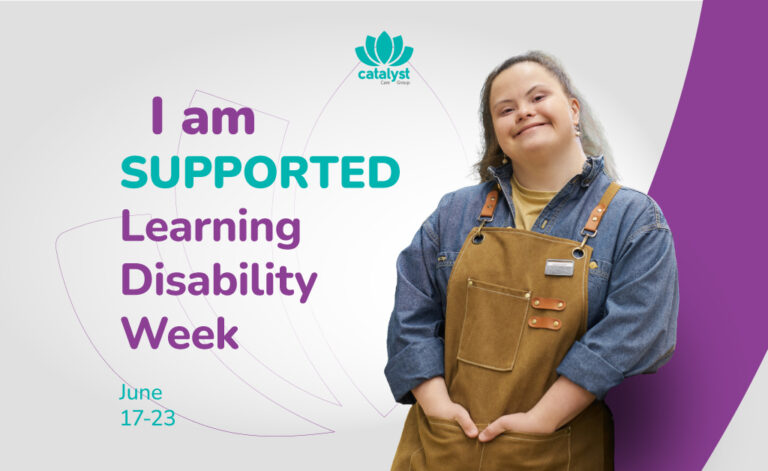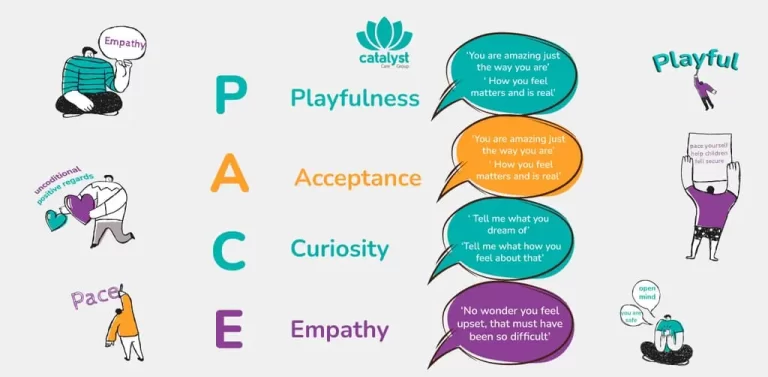Trauma-informed practice involves recognising traumatic experiences and their relationship to behavioural challenges within a person. By acknowledging the impact of trauma on people, front-line professionals and communities can start building a trauma-informed environment in the integration of care services.
What is Trauma-Informed Care?
Many people requiring care and support in behavioural care settings have a history of traumatic experiences. Some people are often unaware of the impact of trauma in their lives or tend to avoid and suppress the experience completely.
On the other hand, care practitioners may not ask questions about a person’s history of trauma when beginning to work with an individual. This can further lead to challenges in finding the best proactive solutions to address trauma-related behaviours and issues. Sometimes, a person’s past experience of trauma may cause a barrier and distrust in the process of receiving care and support.
The trauma-informed approach is focused on asking ‘What happened to you?’ rather than ‘What’s wrong with you?’, recognising that the challenging behaviours may be coping mechanisms resulting from adaptation and survival. Most importantly, trauma-informed care aims to promote healing and resilience in people, empowering them to trust in mental health services that can help them learn self-regulation and well-being skills.
Trauma-informed practice is based on the four R’s, including:
- Realise- understanding the impact of trauma on individuals, families, groups, organisations and communities
- Recognise- knowing the signs and symptoms of trauma
- Respond- implementing the principles of trauma-informed approach in all practices
- Resist re-traumatisation- identifying and preventing potential triggers and actions that might evoke painful memories, such as the use of restraint or restrictive practices
Awareness of the Prevalence of Trauma
To understand the prevalence of trauma, we first need to answer the question, ‘What is trauma?’.
Trauma comes from an event, series of events or circumstances that were emotionally or physically harmful or life-threatening, which has a lasting, pervasive impact on the person’s functioning and physical, mental, social, emotional or spiritual well-being.
The severity of traumatic stress is defined by several factors, including:
- Types of events and circumstances and the intensity of exposure
- Frequency of trauma exposure (once or repeatedly)
- Directly or indirectly experienced trauma
- Person’s age and development phase (child or adult)
- Individual resilience (a person’s way of reacting)
- Pre-existing mental health challenges
- Access to help and support
In the UK, one in three adults report having experienced trauma at least once in their lifetime. Traumatic events involve experiences that have put the person or someone around them at risk of serious harm or death. Once witnessed, the body remembers the effects and impact of trauma and tends to react every time a person is exposed to a similar or a different type of trauma-related event.
Trauma can have an adverse and lasting negative effect on people’s health, leading to the development of serious physical and mental health conditions. The widespread impact of trauma can cause several signs and symptoms, including:
- Sensitivity to noise or touch
- Flashbacks and frequent nightmares
- Constant anticipation of something negative to happen
- Lack of focus and concentration
- Irritability
- Excessive precaution, anxiety, anger, shame or sadness
Most often, trauma manifests in ways that pose a challenge to societal norms of acceptable behaviour. Consequently, people tend to react rather than understand the reason behind a person’s behaviour that challenges. For that purpose, Catalyst Care Group has developed trauma-informed care training for every employee in our organisation. The goal of the training is to raise awareness about the impact of trauma not solely for the people we support but also in the internal communications between colleagues and associates.
This has helped us understand that each one of us comes with our own inner struggles, and we need to choose acceptance and support rather than judgment and exclusion.
Re-Traumatisation
When witnessing a behaviour that challenges, people tend to react and stop the behaviour instantly. This is known as the default uninformed response to trauma. This pattern usually occurs in three steps:
- React
- Discipline
- Call on compliance
However, accidentally and unintentionally, we can re-traumatise the people around us.
Re-traumatisation involves any circumstance, event or environment that reminds the individual of their trauma, whether literally or symbolically, that triggers difficult emotions and reactions related to the initial trauma. Every system and every level of care—individuals, staff, and organisation—can potentially cause re-traumatisation.
In most cases, re-traumatisation is inadvertent. At the same time, some obvious reactions can re-traumatise a person, such as the use of restrictive measures, and less noticeable triggers, such as sounds, smells or specific interactions, may cause people to re-traumatise.
Understanding re-traumatisation is extremely important as people who have experienced trauma multiple times are more likely to showcase exacerbated trauma-related signs, symptoms, and behaviours than individuals with a single trauma.

A Trauma-Informed Care Approach
A trauma-informed approach is focused on understanding the person as a whole. When an individual experiences trauma, it impacts the person’s self-perception, perception of others and perception of the world. This perception directly impacts a person’s ability and willingness to use support services and gain trust in support workers and care practitioners.
As a house of brands, we implement trauma-informed care (TIC) as an organisational structure and support framework focused on understanding, recognising and responding to the effects of trauma. Our trauma-informed care approach is implemented both on individual and collective levels, emphasising the physical, psychological and emotional safety of the people we support and our team members.
With trauma-informed practices, we support people in rebuilding a sense of control and empowerment in their lives.
Key Principles of Trauma-Informed Care
Trauma-informed care is based on a set of core values or principles that create a framework for healthcare providers to recognise trauma and reduce the risk of re-traumatisation. The following lines describe the five main principles of trauma-informed care we are committed to implementing when providing care and support services to people with complex care needs.
Safety
Catalyst Care Group is dedicated to creating and nurturing a safe environment where the team and the people they serve feel psychologically and physically safe. Promoting a sense of security and safety is paramount in every interaction and physical setting that people are part of.
Trustworthiness
Trusting relationships and transparent communication are the keys to building a culture of confidence, stability and support among teams, the people we work with, and their families.
Collaboration
Effective collaboration is based on mutual power-sharing and decision-making in providing care and support, as well as among team interactions across the organisation. Giving power to people’s voices provides a sense of meaning and helps them build confidence, self-esteem and motivation to participate actively in the support processes.
Empowerment
We develop skills and create capable environments that allow people to feel valued and respected, encouraging them to thrive and become the best versions of themselves.
Choice
Catalyst Care Group strives to enhance choice for its team members, care recipients, and their family members while acknowledging that each person’s experience is different and calling for a unique and personalised approach.
Goals of Trauma Informed Care
The trauma-informed practice aims to build an environment of empathy, compassion and mutual understanding. This involves changing how we see people and how people see us, an approach that focuses on people’s skills, strengths and experiences rather than perceived weaknesses.
At the very core of the trauma-informed approach lies building trauma-informed systems based on partnerships and collaborations instead of judgment and discrimination. At Catalyst Care Group, a trauma-informed care approach allows us to:
- Relate with people, understand and validate their experiences and reality
- Build self-awareness and reflect on our beliefs, attitudes and prejudices
- Regain a sense of safety, confidence and dignity
- Restore hope and resilience
We are a Trauma-Informed Organisation
As a house of brands, we take proactive steps to fully implement the trauma-informed approach to care. Promoting empathy and compassion in everything we do is the hallmark of our organisation, along with the person-centred and outcome-based approach.
To create a culture of excellence and continuous improvement, we build a culture of awareness about the importance of trauma-informed care and promote a supportive and inclusive environment. Additionally, our teams share the values and principles of trauma-informed care, and we create a safe emotional, psychological and physical environment for them to thrive.
For more information, please check our impact in the real-life stories or get in touch with our managers.













